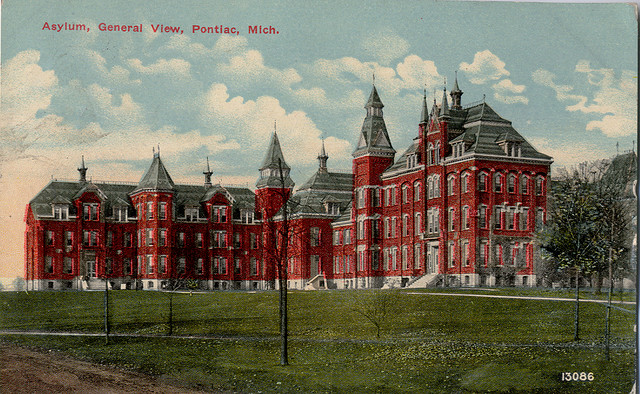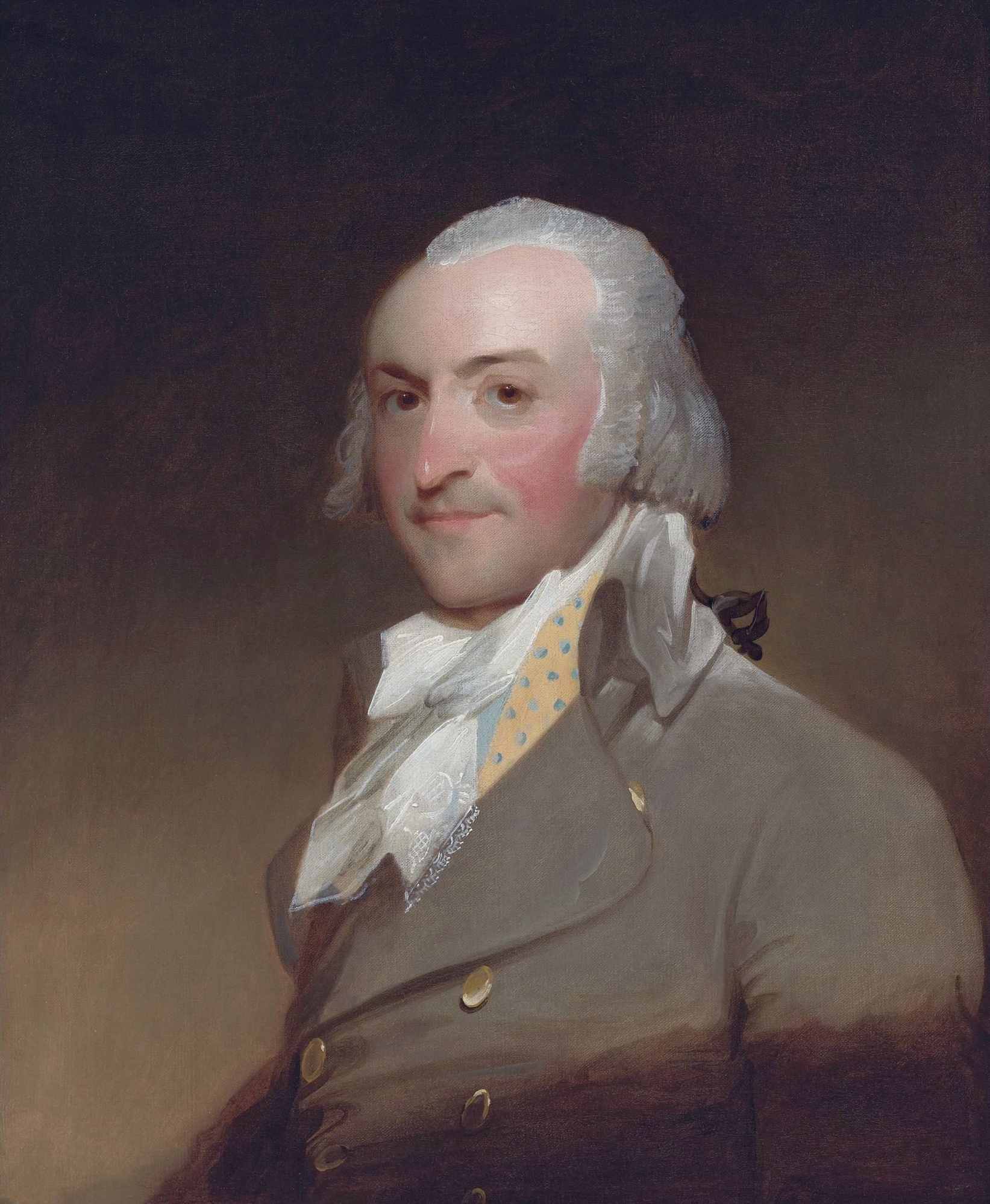|
Stephen Mack, Sr.
Stephen Mack (June 15, 1766 – November 11, 1826) was an American merchant, patriot and politician. He was a member of the founding company of Pontiac, Michigan, and represented Oakland County in the First Michigan Territorial Council in 1824. He was also the brother of Lucy Mack Smith and so the uncle of Joseph Smith, founder of the Latter Day Saint movement. Early life and military service Stephen Mack was born June 15, 1766, in Marlow, New Hampshire, to Solomon Mack and Lydia Gates Mack. His father noted: "There were but four families in forty miles...As our children were wholly deprived of the privilege of schools, she took the charge of their education..." In 1779, not yet 13 years old (his father called him fourteen), he enlisted with his father and older brother Jason to serve on a privateer in the American Revolutionary War. His father related one incident when: My son Stephen, in company with the cabin boys, was sent to a house, not far from the shore, with a wounded ma ... [...More Info...] [...Related Items...] OR: [Wikipedia] [Google] [Baidu] |
Pontiac, Michigan
Pontiac ( ') is a city in and the county seat of Oakland County, Michigan, Oakland County in the U.S. state of Michigan. Located roughly northwest of downtown Detroit, Pontiac is part of the Metro Detroit, Detroit metropolitan area, and is variously described as a satellite city or suburb of Detroit. As of the 2020 United States census, 2020 census, the city had a population of 61,606. Founded in 1818, Pontiac was the second European-American organized settlement in Michigan near Detroit, after Dearborn, Michigan, Dearborn. It was named after Pontiac (Ottawa leader), Pontiac, a war chief of the Ottawa people, Ottawa Tribe, who occupied the area before the European settlers. The city was best known for its General Motors automobile manufacturing plants of the 20th century, which were the basis of its economy and contributed to the wealth of the region. These included Fisher Body, Pontiac East Assembly (a.k.a. Truck & Coach/Bus), which manufactured GMC (automobile), GMC products, ... [...More Info...] [...Related Items...] OR: [Wikipedia] [Google] [Baidu] |
American Fur Company
The American Fur Company (AFC) was a prominent American company that sold furs, skins, and buffalo robes. It was founded in 1808 by John Jacob Astor, a German Americans, German immigrant to the United States. During its heyday in the early 19th century, the company dominated the American fur trade. The company went bankrupt in 1842 and was dissolved in 1847. During the 18th century, furs had become a major commodity in Europe, and Indigenous peoples of the Americas, Indigenous people in North America became a major supplier. Several British companies, most notably the North West Company (NWC) and the Hudson's Bay Company, competed against Astor and capitalized on the lucrative Fur trade, trade in furs. Astor used a variety of commercial strategies to become one of the first Cartel, trusts in American business and a major competitor to the British commercial dominance in North American fur trade. Expanding into many former British Trapping, fur-trapping regions and trade routes, th ... [...More Info...] [...Related Items...] OR: [Wikipedia] [Google] [Baidu] |
People From Tunbridge, Vermont
The term "the people" refers to the public or common mass of people of a polity. As such it is a concept of human rights law, international law as well as constitutional law, particularly used for claims of popular sovereignty. In contrast, a people is any plurality of persons considered as a whole. Used in politics and law, the term "a people" refers to the collective or community of an ethnic group or nation. Concepts Legal Chapter One, Article One of the Charter of the United Nations states that "peoples" have the right to self-determination. Though the mere status as peoples and the right to self-determination, as for example in the case of Indigenous peoples (''peoples'', as in all groups of indigenous people, not merely all indigenous persons as in ''indigenous people''), does not automatically provide for independent sovereignty and therefore secession. Indeed, judge Ivor Jennings identified the inherent problems in the right of "peoples" to self-determination, as i ... [...More Info...] [...Related Items...] OR: [Wikipedia] [Google] [Baidu] |
Politicians From Detroit
A politician is a person who participates in policy-making processes, usually holding an elective position in government. Politicians represent the people, make decisions, and influence the formulation of public policy. The roles or duties that politicians must perform vary depending on the level of government they serve, whether local, national, or international. The ideological orientation that politicians adopt often stems from their previous experience, education, beliefs, the political parties they belong to, or public opinion. Politicians sometimes face many challenges and mistakes that may affect their credibility and ability to persuade. These mistakes include political corruption resulting from their misuse and exploitation of power to achieve their interests, which requires them to prioritize the public interest and develop long-term strategies. Challenges include how to keep up with the development of social media and confronting biased media, in addition to disc ... [...More Info...] [...Related Items...] OR: [Wikipedia] [Google] [Baidu] |
People From Colonial New Hampshire
The term "the people" refers to the public or common mass of people of a polity. As such it is a concept of human rights law, international law as well as constitutional law, particularly used for claims of popular sovereignty. In contrast, a people is any plurality of persons considered as a whole. Used in politics and law, the term "a people" refers to the collective or community of an ethnic group or nation. Concepts Legal Chapter One, Article One of the Charter of the United Nations states that "peoples" have the right to self-determination. Though the mere status as peoples and the right to self-determination, as for example in the case of Indigenous peoples (''peoples'', as in all groups of indigenous people, not merely all indigenous persons as in ''indigenous people''), does not automatically provide for independent sovereignty and therefore secession. Indeed, judge Ivor Jennings identified the inherent problems in the right of "peoples" to self-determination, as i ... [...More Info...] [...Related Items...] OR: [Wikipedia] [Google] [Baidu] |

